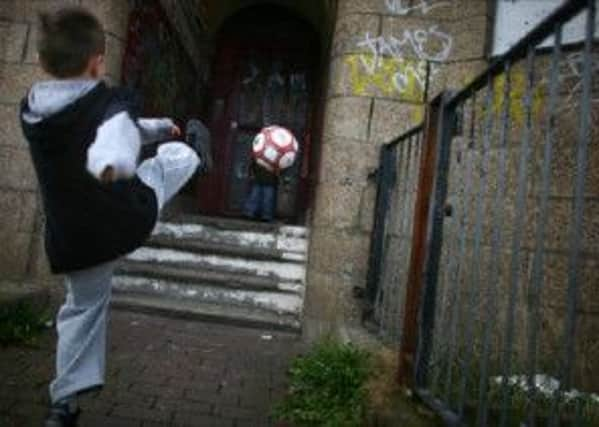‘Create not-for-profit energy to tackle poverty’


The Poverty Truth Commission said it has identified a range of practical solutions after an 18-month study, and is demanding that any attempt to address the problem should directly involve those who live in poverty.
The poverty action group said people were being blamed for being poor and much of the cash being spent to help was failing to reach those most in need.
Advertisement
Hide AdAdvertisement
Hide AdThe commission, which is supported by the Church of Scotland and Faith in Community Scotland, will present its findings at an event with 450 delegates in Glasgow tomorrow.
It is made up of people directly affected by poverty and those who deal with poverty in their professions, such as representatives from Citizens Advice.
Its report says that more than half of the Scots suffering poverty live in working households, while 20 per cent of children are in homes suffering economic hardship. Benefit cuts have contributed to 65,000 Scots visiting food banks run by the Trussell Trust in the past year, it adds.
Martin Johnston, secretary of the Poverty Truth Commission, said that while the recommendations, such as the non-profit energy company, were important, the most radical part of the report was the notion of placing people in poverty at the heart of the policy-making process.
“I think a lot of the time we pay lip-service to this. We engage in consultation procedures that ask people who are affected what their opinion is and then go off and go off and work out what we’ll do anyway.”
He said implementing the report’s recommendations would take time – in building relationships with people in communities worst-hit by poverty, as they were often not used to attending meetings or answering e-mails promptly – but would have long-term sustainable benefits.
“Because so much of our work is based on one, three or five-year cycles, you tend to need success quickly,” he said. “We want a much longer-term, generational model.”
Mr Johnston added, however, that tackling poverty in any area required a mixture of long-term plans, and encouraging proactive leadership among residents, with immediate tangible, specific solutions, such as tackling dampness in homes.
Advertisement
Hide AdAdvertisement
Hide AdThe commission’s report has been supported by Scotland’s former chief medical officer Sir Harry Burns, who is now Professor of Global Public Health at Strathclyde University.
He said: “Most people encounter poverty as beggars in the street. What they don’t appreciate is the extent of real poverty affecting their neighbours in their own communities.
“These are the families who, perhaps after a lifetime of working, struggle with day-to-day expenses such as food, and go hungry in one of the world’s wealthiest countries.”